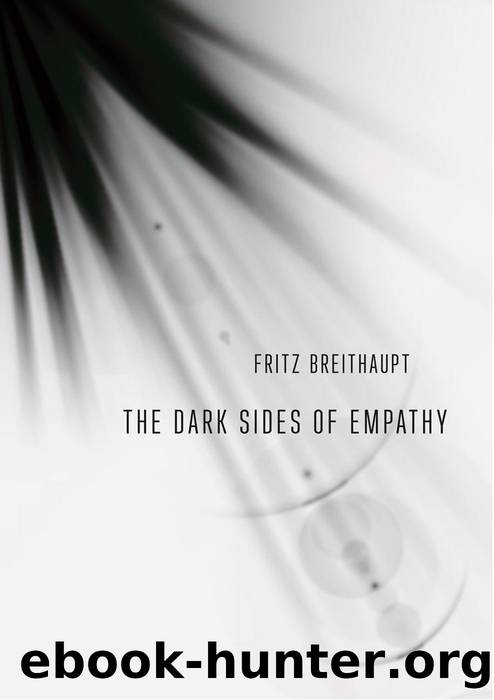The Dark Sides of Empathy by Breithaupt Fritz;Hamilton Andrew B. B.;

Author:Breithaupt, Fritz;Hamilton, Andrew B. B.;
Language: eng
Format: epub
Publisher: Lightning Source Inc. (Tier 3)
Published: 2019-04-02T00:00:00+00:00
Germany, World Champion of Empathy: Angela Merkel and the Refugees
The most courageous political act of the twenty-first century so far has, in my opinion, been the decision by Germany, Austria, and Sweden in September 2015 to open their borders to refugees fleeing the civil war in Syria and similar conflict regions. In that moment, it seemed that the three countries—and Europe as a whole—were finally addressing the biggest humanitarian crisis facing the continent since the wars in the former Yugoslavia two decades before. Not only did Merkel’s pledge that all Syrians who arrived in Germany could apply for asylum there reverse Germany’s own immigration policy, it made meaningless the European Union’s rules, as codified in the Dublin Regulations, about dealing with asylum seekers. What led to this momentous decision? Empathy, I will argue, played an outsized and ultimately corrosive role in the decision-making process.
There is no way to avoid talking about a single person here: Angela Merkel, who has been Germany’s chancellor since 2005. No other political personality in Germany would have made—and stood by—this decision, although politicians of various stripes did stand in support of Merkel. There is no question that Merkel showed exceptional political courage and backbone. And other than Austria and Sweden, no other government in the world took such a risk—and indeed even Austria and Sweden both backpedaled shortly afterwards. Asylum and immigration are third-rail issues in many nations, as we see in Donald Trump’s anti-immigrant rhetoric and policies, Great Britain’s 2016 Brexit referendum, and the 2016 Austrian presidential elections. Indeed, Merkel herself has a mixed record on the issue of immigration and multiculturalism, going on record as late as 2010 as saying that Germany’s experiment with multiculturalism had “utterly failed.”25
This section examines the role empathy played both in Merkel’s decision-making and in the political development since. Let me be clear: I fully support the decision to open the border and second the commitments involved. All rich countries should follow this example. My comments here are not an attempt to be clever in hindsight. Rather, I am critical of how the dynamics unfolded—and backfired.
How did Merkel’s decision come about? Relevant, perhaps, to Merkel’s decision is the particular resonance that the images of devastated Syrian cities and waves of refugees have for Germans, whose parents or grandparents may well have been similarly displaced by the devastation of the Second World War, which transformed several million Germans (as well as citizens of other nations) into “displaced persons” or DPs. My generation (I was born in West Germany in 1967) grew up in the shadows of these displacements, which came up in stories and conversations all the time. (It is worth pointing out that the semantic difference between “displaced persons” and “refugees” seem to favor the displaced: they are passive, blameless victims, while “refugees” have taken action, even though both are the consequences of similar political events.)
It is certainly also relevant to recall the Greek debt crisis of 2013, during which Merkel became the face of the arrogant authority of the European Union.
Download
This site does not store any files on its server. We only index and link to content provided by other sites. Please contact the content providers to delete copyright contents if any and email us, we'll remove relevant links or contents immediately.
Cecilia; Or, Memoirs of an Heiress — Volume 1 by Fanny Burney(31333)
Cecilia; Or, Memoirs of an Heiress — Volume 3 by Fanny Burney(30934)
Cecilia; Or, Memoirs of an Heiress — Volume 2 by Fanny Burney(30889)
The Great Music City by Andrea Baker(21318)
We're Going to Need More Wine by Gabrielle Union(18074)
Bombshells: Glamour Girls of a Lifetime by Sullivan Steve(13109)
Pimp by Iceberg Slim(12932)
All the Missing Girls by Megan Miranda(12753)
Fifty Shades Freed by E L James(12451)
Norse Mythology by Gaiman Neil(11885)
Talking to Strangers by Malcolm Gladwell(11880)
Crazy Rich Asians by Kevin Kwan(8351)
Mindhunter: Inside the FBI's Elite Serial Crime Unit by John E. Douglas & Mark Olshaker(7834)
The Lost Art of Listening by Michael P. Nichols(6474)
Enlightenment Now: The Case for Reason, Science, Humanism, and Progress by Steven Pinker(6407)
Bad Blood by John Carreyrou(5770)
The Four Agreements by Don Miguel Ruiz(5511)
Weapons of Math Destruction by Cathy O'Neil(5038)
We Need to Talk by Celeste Headlee(4871)
